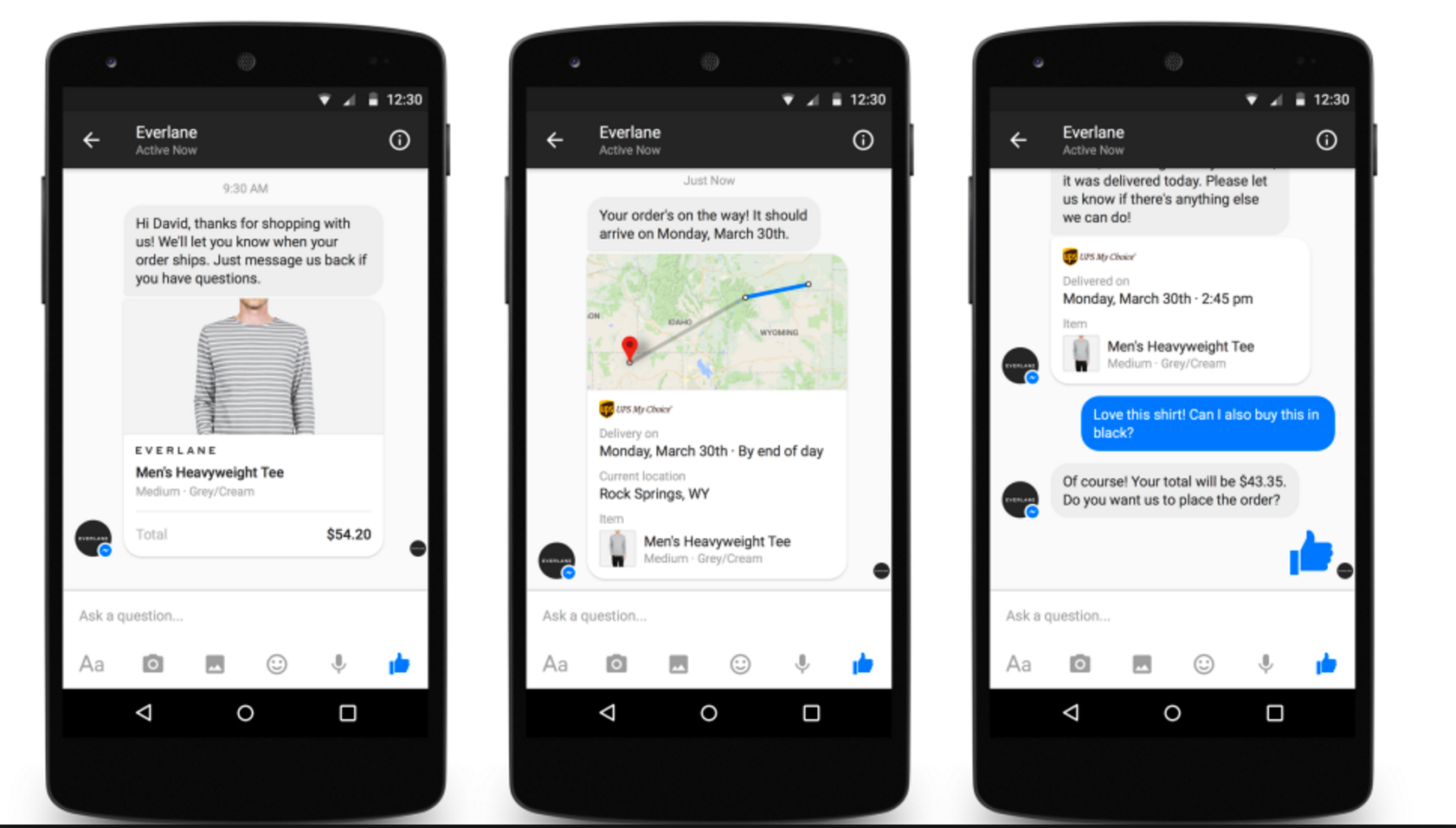Facebook Messenger’s Massive Marketing Potential
Facebook Messenger’s Massive Marketing Potential

A software platform as powerful as Facebook serves multiple purposes in the world of communications. We all know the value it holds for people connecting with people, for people getting information, and for companies communicating to their audience.
Facebook now has a number of different apps and methods of communications beyond its core product, too. For example, we all know the traditional Facebook desktop website and mobile app, but how many of you use Facebook Messenger?
Messenger is not just an attempt to replace your default texting app on your phone. It’s an attempt to transform the ease and convenience for how we communicate with each other as people and companies.
The mobile Messenger experience is a great texting platform, for instance. I can build groups to easily message multiple people. I can search my Facebook contacts and text any of them through the app. I can even call them through the app.
The desktop experience is even better. I can text and call, but I can also exchange files with a drag and drop, make a regular phone call, or have a video chat like Skype.
So, the mobile and desktop Messenger capability is great. But, does anyone use it?
Yes.
According to data from Facebook, it is currently managing over 60 billion messages per day – which is massive compared the number of SMS text messages that are happening per day. The service also has more than one billion active users each month. The distinction of “active” is very important. Many software companies (including Google) have fudged numbers by indicating an active user is just a user that has set up an account. In this case, active means actually recording usage data.
A different study, released recently by Informate (a company that measures mobile activity), found that Americans answer six calls, engage in 32 texts, and spend about 15 minutes on a chat program per day. Facebook Messenger is able to manage all of those interactions and become a one-stop-shop for the most requested type of communication needs we have.
So, there’s an audience using Facebook Messenger. What does it mean for business?
In April Facebook granted access to businesses to create chat capabilities that enable customer service to be delivered through the Messenger platform.
Messenger solves a number of different challenges for companies that struggle to be effective with customer service.
Since the platform is already built, it’s easy for businesses to roll out and train employees to use. There are no disconnection concerns, no trouble understanding an accent that lengthens and confuses a call, and a permanent record of all customer service related conversations are stored within Facebook – so you can access them and refer to them at any time.
Plus the Messenger service is available on your desktop (usually a wireless connection) and through the iPhone or Android app (LTE signal and wireless). That means you engage a real human customer service representative that you can chat with about your problem in real time. Through a technology both parties know how to use and is widely available.
Nice, huh?
Of course, customers have to be okay with getting service delivered to them through Facebook Messenger. But, given the usage data of the app, it seems this is a service customers are ready and waiting for.
If you work in a smaller business, fear not – Messenger isn’t just for big companies to use. The smaller the company, the more customers want to receive personal attention. Facebook Messenger is an effective means to conveniently deliver answers to questions, estimates, and deal quickly with service problems.
Is your business poised to deliver what your customers demand through Facebook?


0 Comments